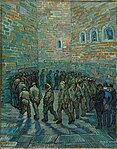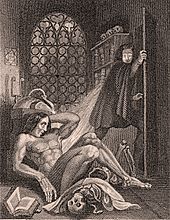 Sometimes I can be a Merry Andrew (or Merry Andrea?). This is a Polyanna Post to encourage fellow self published writers who feel a bit downhearted; cast down by lack of public recognition, perhaps, or dismayed at unimpressive sales figures.
Sometimes I can be a Merry Andrew (or Merry Andrea?). This is a Polyanna Post to encourage fellow self published writers who feel a bit downhearted; cast down by lack of public recognition, perhaps, or dismayed at unimpressive sales figures.
The thing is, if you aim for any sort of originality, if you give reign to the imagination and strain the boundaries of convention and genre, a lot of people are going to be frankly puzzled. They won’t ‘get it’; or if they do, they may hate it.
If you write primarily to create something you believe in, rather than churning out four novels as a month or whatever it is that is recommended to keep you in the best seller lists at Amazon, then you have to run the risk of the work not receiving the recognition, the success of which all writers dream.
That doesn’t mean that it never will be successful; we hear all the time of writers who have broken the rules and made a success of it – and the irony is, that invariably means that they set off a trend. For instance, vampires were long out of fashion until the excellent Anne Rice revived them with ‘Interview with a Vampire’.
We are forever being told that ‘the market’ doesn’t like this or that, as though this said market is some sort of irascible god who must at all costs be appeased; in fact, a separate entity from the readers out there, who all have individual tastes and quirks.
Some of those readers might be the very people who will love what you have written, write rave reviews, set off a trend and lead to that elusive success and recognition.
Though writers would rather have recognition in this lifetime, the example of Emily Bronte is still something of a balm.
She died early of ‘consumption’ only a couple of years after writing ‘Wuthering Heights’, with no inkling that her only novel would become a classic. Critical response had generally been hostile; though some acknowledged the power of the writing, all were disgusted with the dark picture of unrestrained destructive passions she depicted. This review from Graham’s ‘Lady’s Magazine’ is fairly typical: –
‘How a human being could have attempted such a book as the present without committing suicide before he had finished a dozen chapters, is a mystery. It is a compound of vulgar depravity and unnatural horrors.’
Then, to venture outside the world of writing, Vincent Van Gogh must be the ultimate example of the artist who, commercially an utter failure in his lifetime, now has works that sell for millions.

Perhaps the collectors forget that Van Gogh’s initial reason for wishing to paint was to depict the sufferings of the poor and oppressed. 
I always thought he never sold one painting during his lifetime,but here it seems I am wrong. He did sell one, ‘The Red Vineyard’. 
However, to return to my main theme.
The website
http://www.literaryrejections.com/best-sellers-initially-rejected/
lists various classics which were initially underestimated by those in the publishing world, including: –
CS Lewis received rejections for ‘The Chronicles of Narnia’ for years, but continued to write.
Mary Shelley received numerous rejections for ‘Frankenstein’ until a small publisher agreed to print five hundred. They book only sold twenty-five in 1818, and it was not until 1831 and a third edition that sales started to improve. 
A rejection letter to W Golding states that his book ‘The Lord of the Flies’ was, “An absurd and uninteresting fantasy which was rubbish and dull.’ 
DH Lawrence’s ‘Lady Chaterley’s Lover’ was rejected by every conceivable publisher in the UK and US, so that he had to self publish.
‘The Time Traveller’s Wife’ by Audrey Niffeneggar was rejected by twenty-five literary agents.
Even those who write more mainstream novels have often received a staggering amount of rejections. Agatha Christie five years worth of them. Stephanie Myers was comparatively lucky with her ‘Twilight’ . It received only 14.
Stephen King became so discouraged by trying to write the later best seller ‘Carrie’ that he threw it in the bin (his wife later rescued it). He went on to receive dozens of rejections by publishers before that final acceptance.
So, there are many indications that writers have much to gain by continuing to write what they love and believe in. whether it meets with rejections from traditional publishers, or commercial failure or not.
However, personally, I am not a purist; I see no reason why one shouldn’t churn out a bit of stuff now and then for fun which you wouldn’t put under your main pen name. That can be enjoyable; it might even meet with commercial success; but it isn’t the same as writing what you are inspired to write, which at those addictive times seems almost to write itself.
Those times of inspiration are priceless.
4 Responses
Amen to all of this, Lucinda. I often get depressed by the number of writers who slavishly churn out whatever is deemed necessary by those who purport to understand ‘the market’. Whatever happened to taking the long view? And, of course, as you rightly point out, that ‘market’ is not some homogeneous lump, but a collection of vastly disparate individuals, all with their own particular preferences and quirks.
Here’s to the individual and the quirky!
Too right, Mari. Down with that old fetishm of commodities…
Just wanted to stop by and say hello! This was an inspiring post and will hopefully help authors to stick with it and write from the heart.
Why, than you, Lauryn. I hope it does…